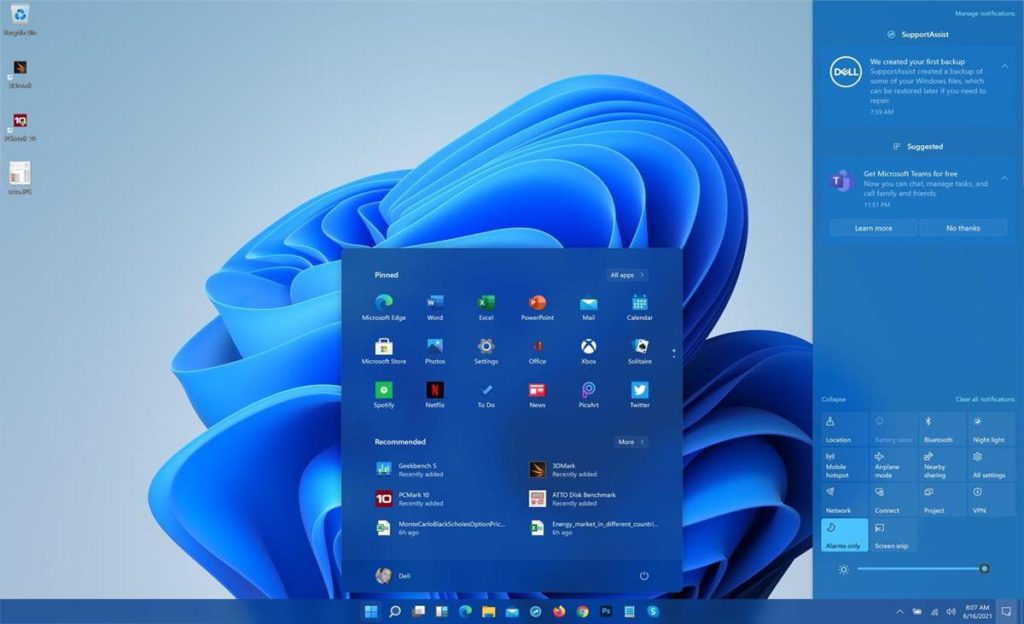Last week on the Computer Doctor blog, we did our best to answer the question of “should I get Windows 11?” by breaking down the pros and cons of the new update. Today we are answering an equally important question- can I get Windows 11? We’ll talk system requirements, hardware type, and why this round of upgrades won’t be a DIY project at home.
TL,DR (too long, didn’t read): Your PC should be all set if it is only a few years old, but will need upgrades to hardware in most other cases. Read below to see these upgrades.
What are system requirements?
System Requirements are the base specifications a PC must have in order to perform a task. Processor type, processor speed, available space, memory, and even software versions all matter. Microsoft is getting picky with the base specs this year, which means major upgrades for some folks. Most PCs with Windows 10 will be able to upgrade to Windows 11, since manufacturers usually build computers far above the minimum specs. Some older models may be far enough behind in upgrades that hardware will need to be replaced. Windows 11 will require:
- 1 GHz processor with at least two cores (64 Bit)
- 4GB of RAM
- >64GB of Storage (with enough free space to install Windows- about 20GB)
- TPM Module installed and activated. *
- A CPU built during or after 2017. *
*Recommended, but not mandatory in most cases.
As I mentioned earlier, these specs are fairly bare minimum, so unless you have a super old computer (pre 2014 or so) you should already have these specs. There is a catch, though!
TPM Module
A TPM (Trusted Platform Module) is a small chip inside of your computer that aids in the storage and generation of encrypted keys. This chip has been included in most PCs since 2015, but in almost all it is disabled. That means it’s there but it just sits dormant. Windows won’t recognize this, however, so a technician will need to dig into the inner workings of the PC in order to get it activated and running so that Windows can use it.
One important thing that Microsoft hasn’t been clear about? Some of these things are optional.
Many PC users were put off by the announcement that PCs would need to be 4 years old or newer to run the new operating system. While 4 years is roughly the life expectancy before replacing parts, many PCs are still fully functioning, even excellent-specced computers at that age. This brings us to the topic of Soft Floor vs. Hard Floor.
Soft Floor vs. Hard Floor
While this may sound like the new Microsoft Vacuum Cleaner setting, it is actually a way to sneak around some of the system requirements and keep your old PC running. In the world of computers, a hard floor is the level your computer must meet to physically be able to run with a piece of software- in this case, Windows 11. Without these specs, the computer will simply lock up and shut down. A soft floor is a subjective standard of not just running, but running well. While Microsoft may think that a new PC and a TPM chip are a necessity, I am here to tell you otherwise.
Don’t get me wrong, I am not suggesting you dig up the beige box of computer sadness in hopes of running Windows 11. That won’t happen. What I am suggesting is that an i5 processor made in 2016 is just about as good as one made in 2017. There is a lot of flexibility in these specs, so don’t resort to buying a new computer just yet. Sometimes, a simple hardware upgrade is all you need. These sorts of upgrades can keep you going for years to come. For upgrades, call us first!
The Bottom Line
If you have a computer that runs well now, it should take Windows 11 without a hiccup. If you have a computer that causes stress, sadness, and overall lack of joy, you should consider upgrading before updating. We always recommend an i5 or greater, an SSD, and 8GB of RAM for any computer. These specs are above the bare minimum to a level where the workflow of your computer runs smoothly. No excessive wait times, and no freezing.
If you’re considering upgrades for your computer, call us today or visit us online!
